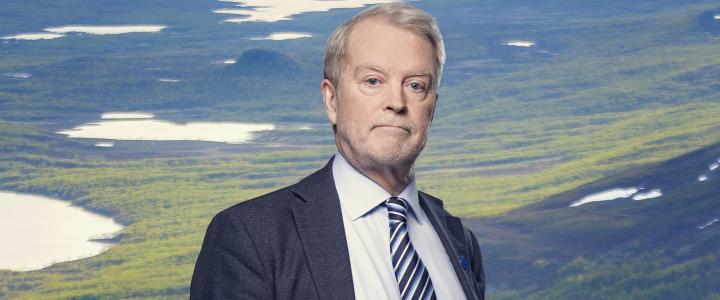

Finland has passed the half-way post of our Arctic Council chairmanship 2017–19, and it is time to take a look at the state of the Arctic from our point of view.
We defined four priorities for our Chairmanship: environmental protection, connectivity, meteorological cooperation and education, using climate change and sustainable development as two broad frameworks for all activities.
Environmental protection was the reason to launch Arctic cooperation in the 1990’s. Together with climate activities, it remains the most urgent task of the Arctic Council. Finland invited other Arctic States to join in curbing the emissions of black carbon, which accelerates climate change and is a serious health hazard. Efforts should be made to modernize power and heat production facilities, to end residual flaring in oil and gas production, and to switch from heavy fuel oil to LNG in ship engines.
Finland also organized an Arctic Biodiversity Congress and an Arctic Environment Ministers’ meeting, focusing on climate change, biodiversity and prevention of pollution.
In the area of connectivity, we are entering a new era, based on increased mobility. New space technology will complement existing networks and ensure functional connectivity everywhere, also in the North, provided that the necessary investments are forthcoming. Here the Arctic Council cooperates closely with the Arctic Economic Council.
We have already made a breakthrough in meteorological cooperation. The need for better research, observation and services in the Artic has been recognized. The national meteorological institutes – together with the World Meteorological Organization – are making a strong commitment to work in the Northern latitudes together with the Arctic Council and other relevant organizations.
Improved connectivity together with reliable meteorological services will have an enormous impact for the use of sea routes and improve economic activities in the Arctic region.
Equal access to education is a key to ensure the participation of all people, including indigenous peoples, in the development of their communities and the region. Together with the University of the Arctic we are working to build the capacities of Arctic inhabitants, including indigenous peoples, to fully participate in the development of the region. The UArctic Congress held in Oulu and Helsinki promoted education and other priorities of the Finnish chairmanship.
When the Arctic is changing, we should always look at emerging challenges to tackle in Arctic cooperation. I would like to give two examples.
As navigation in Arctic waters increases, there will be a growing need to improve maritime safety and security. We should fully implement the existing agreements, use new and emerging technologies, and work with the International Maritime Organization to develop appropriate regulation.
Last summer, wildfires occurred in surprisingly many Arctic areas, serving as a wake-up call. As a consequence of the warming climate, wildfires will be more regular and a growing threat to Arctic communities. It is important that we make an urgent effort to improve our capacities to predict and prevent wildfires in the future, both nationally and through international cooperation.
The Arctic countries face a growing number of common challenges. They would do well to explore for common solutions, and this can only be done when peace, stability and constructive cooperation are the goals that they are committed to pursue.
I wish to thank Fulbright Finland for promoting academic endeavours that focus on the Arctic. The students and researchers that participate in Fulbright activities will play an important role in the academic, administrative and business life of their countries, and they will benefit from the Arctic-related insights and networks provided by the Fulbright Program.
We all look forward to meeting them at the next Fulbright Arctic Initiative week to be held in Helsinki and Oulu in February 2019.
Aleksi Härkönen
Ambassador for Arctic Affairs
Read the whole Fulbright Finland News magazine 2/2018!




